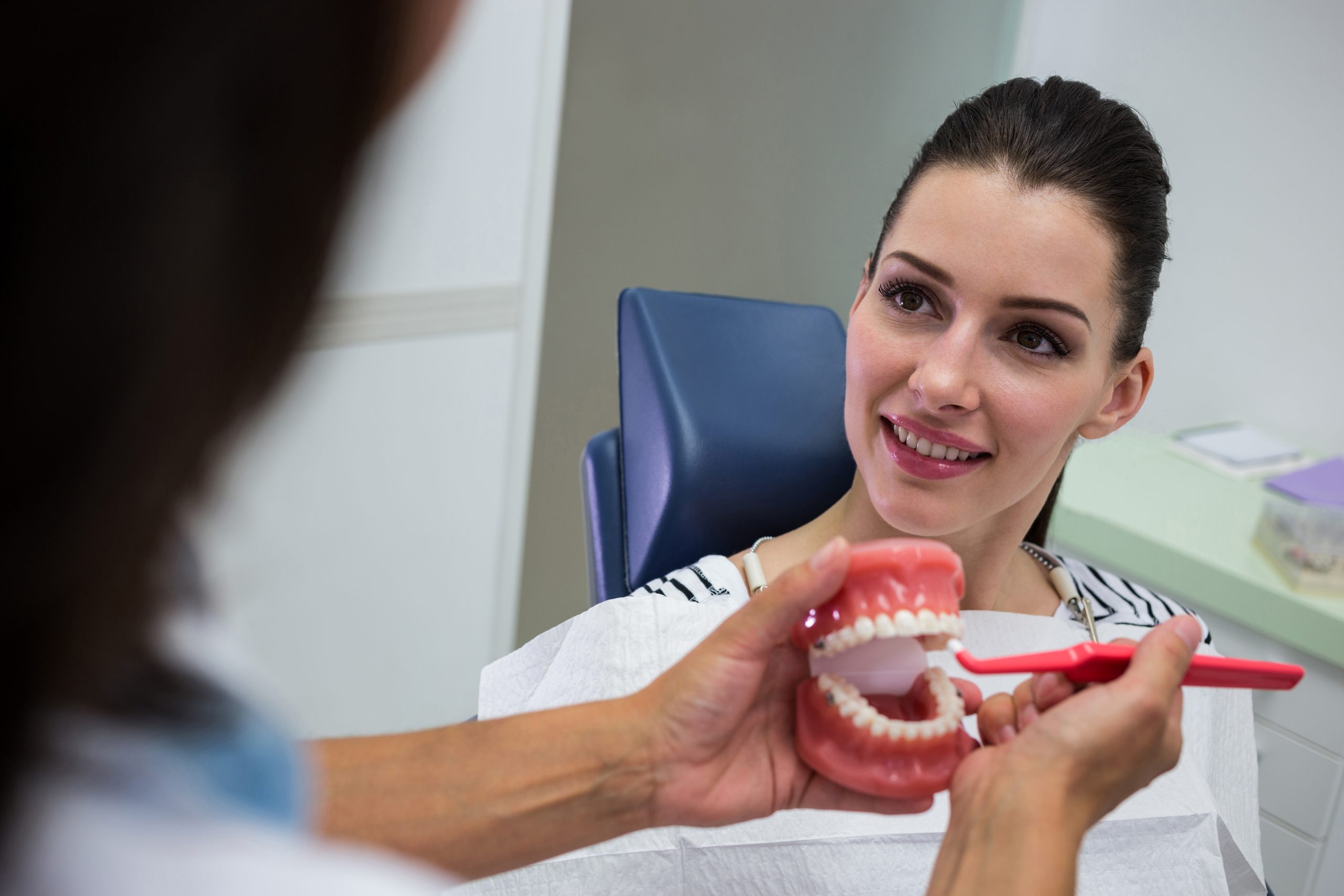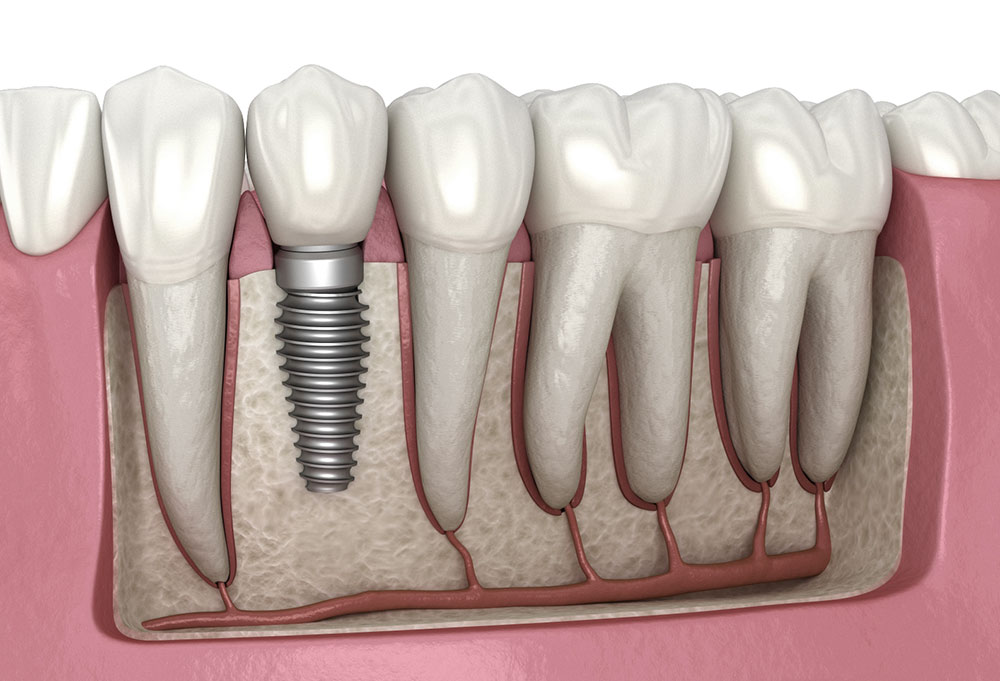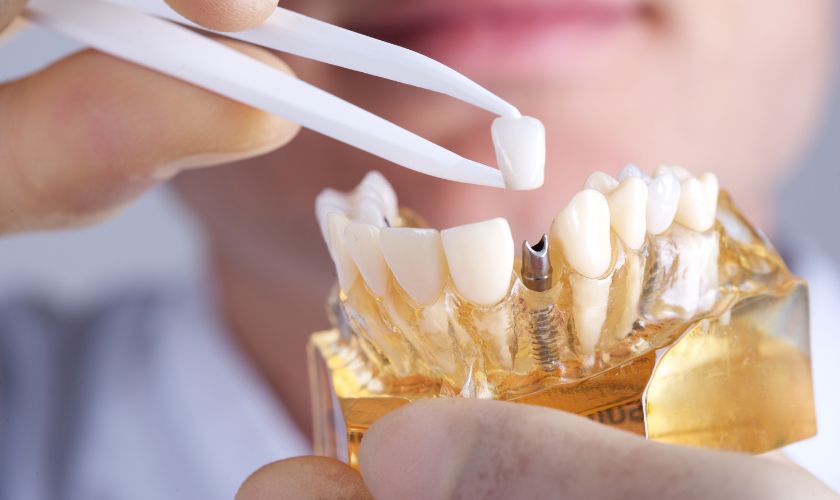Are you one of the millions of people who have invested in dental implants to improve your smile and overall oral health? If so, it’s important to know that caring for your implants is essential for their longevity. After all, they represent a significant investment in both time and money. In this blog post, we’ll discuss some practical tips on how to care for your dental implants so that they last as long as possible. From proper brushing techniques to regular check-ups with your dentist, we’ve got you covered. So let’s dive into the world of implant care!

Source: freepik.com
What are Dental Implants?
Dental implants are a popular and effective way to replace missing teeth. They are usually made of titanium and are placed in the jawbone where they fuse with the bone over time. Dental implants can be used to support one or more artificial teeth, called crowns.
Dental implants are strong and durable, but they still require some care to ensure that they last for many years. Here are some tips for caring for your dental implants:
1. Brush and floss your teeth regularly. This will help prevent gum disease, which can damage the bone around the implant and cause it to loosen.
2. See your dentist or implant specialist regularly for checkups and cleanings. They will be able to spot any problems early and treat them before they become serious.
3. Avoid smoking, which can decrease blood flow to the gums and increase the risk of infection.
4. Eat a healthy diet rich in calcium and other nutrients that are good for bones. This will help keep your jawbone strong and healthy.

Source: freepik.com
Benefits of Dental Implants
Dental implants are a great way to improve your smile and self-confidence. They are also a very effective way to replace missing teeth. Dental implants are strong, durable, and long-lasting. With proper care, they can last a lifetime.
There are many benefits of dental implants. They can:
• Improve your appearance: Dental implants look and feel like your own teeth. They are permanently attached to your jawbone, so they won’t move around as dentures can.
• Improve your speech: Dentures can sometimes slip out of place and cause you to mumble or slur your words. Dental implants are securely anchored in your mouth, so you can speak clearly.
• Increase your comfort: Because dental implants fuse to your jawbone, they eliminate the discomfort of removable dentures. They also don’t require the use of messy adhesives.
• Improve your chewing ability: Dental implants allow you to eat all the foods you love without worrying about them slipping out of place or causing pain.
• Enhance your oral health: Unlike dentures, which can actually lead to bone loss in the jaw, dental implants actually help preserve bone tissue in the jaw. Additionally, because dental implants don’t have to be anchored to other teeth like bridges do, more of your natural teeth remain intact, further improving oral health.
How to Care for Your Dental Implants
If you have recently had dental implants placed, congratulations! Dental implants are a great way to replace missing teeth and can give you a beautiful, natural-looking smile. However, it is important to take care of your dental implants properly in order to ensure their longevity. Here are some tips on how to care for your dental implants:
Brushing & Flossing Tips
When it comes to caring for your dental implants, brushing and flossing are just as important as with your natural teeth. Here are some tips on how to brush and floss your dental implants:
- Use a soft-bristled toothbrush and gentle circular motions when brushing your dental implants.
- Be sure to brush all sides of the implant, including the top and bottom.
- Floss at least once a day using a gentle up-and-down motion.
- Be careful not to snap the floss when going around the implant.
- Avoid using mouthwash with alcohol as it can dry out the gums and irritate the implant site.
Avoid Staining Foods and Beverages
To avoid staining your dental implants, it is best to avoid foods and beverages that are known to cause staining. These include coffee, tea, red wine, and tobacco products. It is also important to brush your teeth twice a day and floss daily. If you do consume foods or beverages that can cause staining, be sure to rinse your mouth with water afterward.
Regular Checkups with Your Dentist
It is important to have regular checkups with your dentist, even if you have dental implants. Your dentist will be able to check for any potential problems with your implants and ensure that they are still in good shape. They can also clean your implants and make sure that they are free of plaque and tartar buildup.
Possible Complications and Solutions
Dental implants are a popular choice for replacing missing teeth. They are strong and durable, and with proper care, can last a lifetime. However, there are some possible complications that can occur with dental implants. The most common complication is implant failure. This can happen if the implant does not fuse properly to the bone, or if the surrounding tissue becomes infected. Other complications include peri-implantitis (inflammation of the tissue around the implant), damage to adjacent teeth, and nerve damage.
If you experience any complications with your dental implants, it is important to seek treatment right away. Treatment will vary depending on the complication but may involve antibiotics, additional surgery, or removal of the implant. With prompt treatment, most complications can be resolved successfully and without long-term effects.
Source: The Marquis Center For Full Mouth Dental Implants
Taking good care of your dental implants is essential to ensure their longevity and performance. A consistent oral hygiene routine that includes brushing, flossing, mouthwash, and regular visits to the dentist will help keep your dental implants in top shape for years to come. With proper maintenance and care, you can have a lasting smile that looks and feels great!




